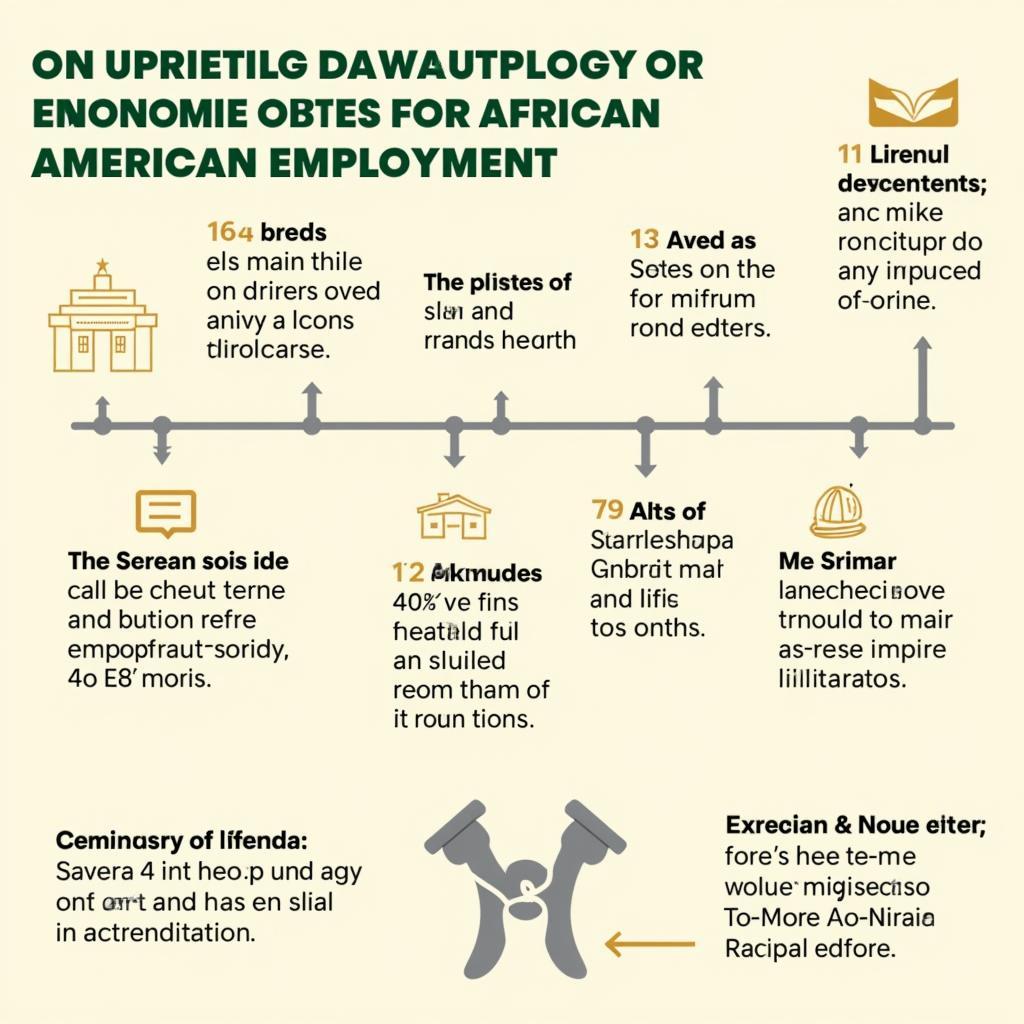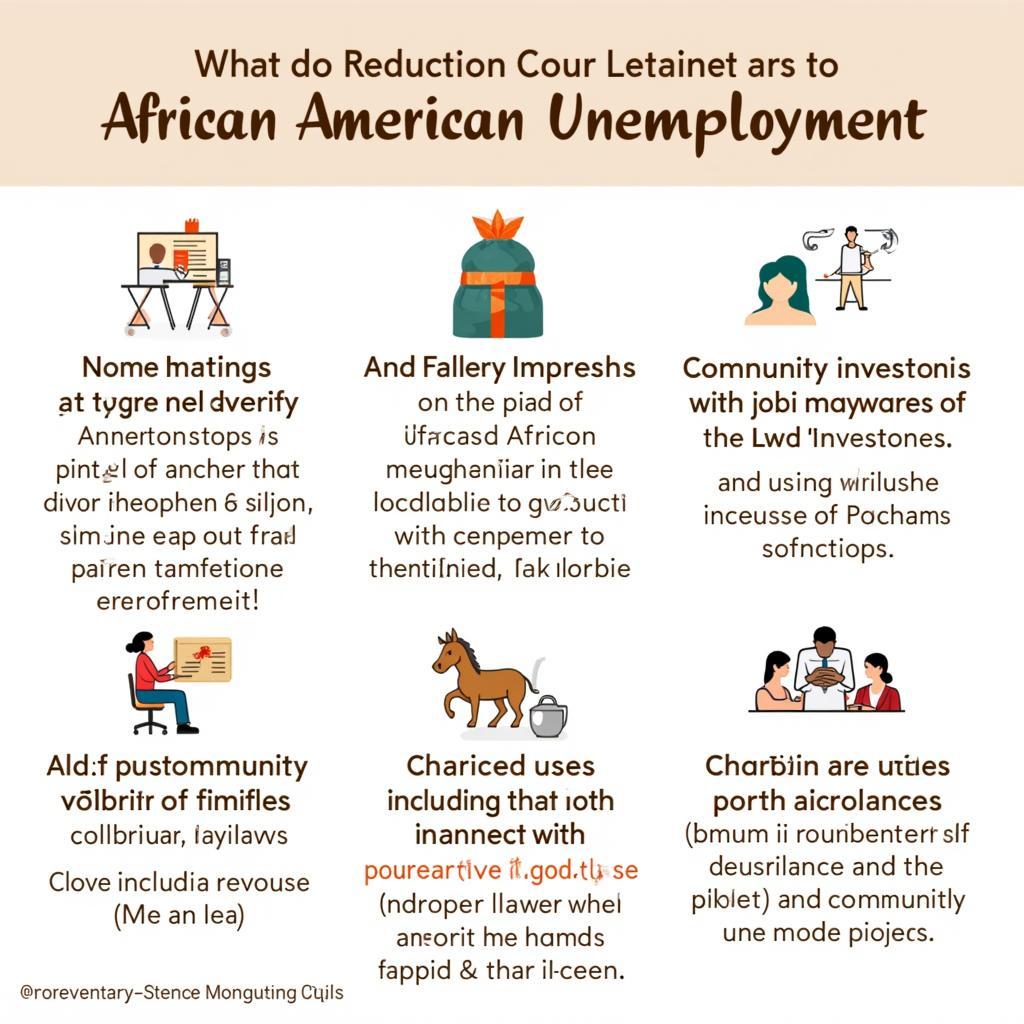Understanding the African American Unemployment Rate
The African American Unemployment Rate is a critical indicator of economic well-being and social equity. This article delves into the historical context, contributing factors, and potential solutions surrounding this complex issue. We’ll examine the data, explore the underlying causes, and discuss the ongoing efforts to create a more equitable job market for African Americans.
A Historical Perspective on African American Unemployment
Historically, African Americans have faced significant disadvantages in the labor market, stemming from slavery, Jim Crow laws, and ongoing systemic discrimination. These historical injustices have created deep-rooted disparities that continue to impact the African American unemployment rate today. Even after the Civil Rights Movement, discriminatory practices in hiring, promotion, and access to education and training have perpetuated economic inequality.
One crucial element in understanding the persistent disparity is the impact of discriminatory housing policies, often referred to as redlining. These policies limited access to housing and financial resources for African Americans, hindering their ability to build wealth and access better job opportunities. This historical context is crucial to understanding the current state of African American unemployment. For more insights into the hardships faced by this community, explore this resource on African American hardships.
 African American Unemployment Historical Context
African American Unemployment Historical Context
Factors Contributing to the Disparity
Several factors contribute to the persistently higher unemployment rate for African Americans. These include systemic racism, implicit bias in hiring practices, limited access to quality education and job training programs, and occupational segregation. Furthermore, factors such as the concentration of poverty in certain communities and the lack of access to transportation can create significant barriers to employment. Understanding these complex and interconnected factors is essential to developing effective solutions.
For instance, the digital divide plays a significant role in limiting access to job opportunities and online resources for education and training. This gap in access to technology further exacerbates existing inequalities and contributes to the disparity in unemployment rates. What can be done to bridge this divide and provide equitable access to digital resources? This remains a critical question in addressing the unemployment challenge.
 Factors Contributing to African American Unemployment
Factors Contributing to African American Unemployment
Addressing the African American Unemployment Rate
Efforts to address the African American unemployment rate must be multifaceted and address both the immediate needs and the underlying systemic issues. These efforts include promoting diversity and inclusion in the workplace, expanding access to quality education and job training programs, investing in underserved communities, and advocating for policies that promote economic equity. Addressing the African American unemplo requires a comprehensive approach.
One important aspect is addressing the disproportionate impact of incarceration on African American communities. This requires criminal justice reform and support for re-entry programs that help formerly incarcerated individuals find employment and reintegrate into society.
Furthermore, promoting entrepreneurship and small business development within African American communities can create job opportunities and empower individuals to build wealth and economic independence. This requires access to capital, mentorship programs, and business development resources. You can learn more about the challenges faced by African American boys by clicking this link: African boys com.
 Solutions for African American Unemployment
Solutions for African American Unemployment
Conclusion
The African American unemployment rate remains a persistent challenge that requires ongoing attention and a commitment to systemic change. By understanding the historical context, addressing the underlying causes, and implementing effective solutions, we can work towards creating a more equitable and just economic landscape for all. This requires a collective effort from individuals, communities, organizations, and policymakers to dismantle systemic barriers and create opportunities for economic prosperity for African Americans. The issue of the African American homicide rate is another pressing concern that requires attention. For more information on this topic, visit this link: African American homicide rate. Similarly, incidents like the African American shoots two cops highlight the complex social and economic factors at play.
FAQ
- What is the current African American unemployment rate?
- How does the African American unemployment rate compare to the national average?
- What are the main factors contributing to the disparity in unemployment rates?
- What policies can help reduce the African American unemployment rate?
- What role do education and job training play in addressing this issue?
- How can businesses promote diversity and inclusion in their hiring practices?
- What are some resources available for African Americans seeking employment?
Need help? Contact us 24/7: Phone: +255768904061, Email: kaka.mag@gmail.com, Address: Mbarali DC Mawindi, Kangaga, Tanzania.


